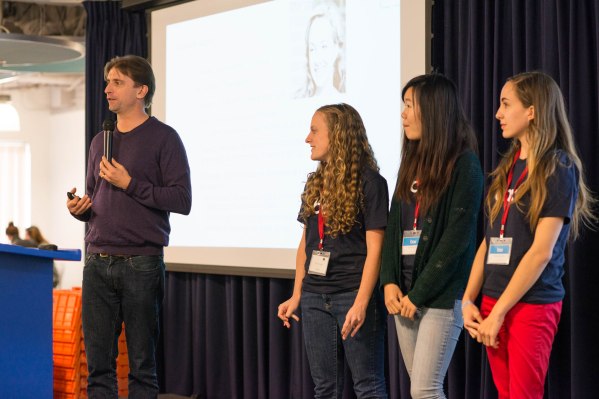Last week, Box announced the winner of its third annual engineering diversity scholarship, Amanda Sopkin of the University of Illinois at Urbana-Champaign. As part of the scholarship, Box awarded Sopkin a $20,000 scholarship, and four female and/or minority students a $4,000 scholarship, a trip to Box HQ and a potential opportunity to intern at the company in the future.
“I think the diversity scholarships are a big part of telling people that this skill is valued and that ‘we want you,'” Priyanka Sekhar, a computer science major at Stanford and winner of a $4,000 scholarship, said. “It’s a big indication that ‘we want you specifically,’ and that cannot be belittled.”
The group of finalists were all female (+5 diversity points), and included one Hispanic person and one Asian person (+2 diversity points). So, on a ten-point diversity scale, Box scored 7/10. That’s an acceptable score, but I was disappointed to see that not one of the finalists was black. African-Americans are the most underrepresented group in tech, so it’s disheartening to see that “diversity” scholarships — efforts that are designed to feed talent into tech companies — are not truly diverse and inclusive.
Other than the diversity scholarship, Box has kept a pretty low profile around the topic of diversity and inclusion. Unlike Google, Facebook, Apple, Slack, Dropbox, Airbnb and countless other tech companies, Box has not released numbers around diversity.
“We will release stuff when we feel like we have something interesting to say,” Box VP of Engineering Sam Schillache told TechCrunch after he announced the scholarship winner. “We’re within industry norms, which is not where we want it to be. We’d like to be better. It’s hard to push the rock up that particular hill because it takes a lot to get the flywheel going — the pipeline going. So we’re focusing on what we’re doing internally as a culture, and when we have stuff to talk about that we think is significant, we will absolutely talk about it. I don’t think it makes sense to talk about our numbers just for the sake of talking about them, until they’re actually interesting — until we have stuff that’s working, that works well.”
I believe Schillache when he says that Box is within the horrendous industry norms around diversity, but that doesn’t give Box a free pass to keep its numbers private. Transparency is the first step when it comes to tackling diversity. How else will we know if the company is making any progress?
In addition to the diversity scholarship, Box is gearing up to start offering unconscious bias training in December. Box has also revamped its job descriptions to make them more race and gender neutral, required at least one woman to sit on interview panels for potential hires, reviewed its hiring website to make sure the photos are inclusive and partnered with outside organizations to source a more diverse pool of candidates. Also, Schillache made a point to tell me that the head of operations on the engineering team is African-American.
“As an industry, we don’t have great machinery and pipelines to find and develop engineering candidates from diverse groups,” Schillache said. “I think there’s just not enough candidate flow, or we’re not finding them, or we don’t understand how to look for them. That’s a challenge. I’m sure there’s plenty of talent out there — I think it’s just, we don’t have the reflexes to find it as an industry as a whole. That’s exactly why we’re working with CODE2040 because we feel like they’re experts.”
Hopefully CODE2040 can help, but it’s also not CODE2040’s responsibility to help Box become more diverse. I hope Box, as well as the tech industry at large, can work on those reflexes Schillache was talking about, because contrary to the beliefs of many white people in tech, there are highly talented racial minorities and LGBTQ people in tech.
